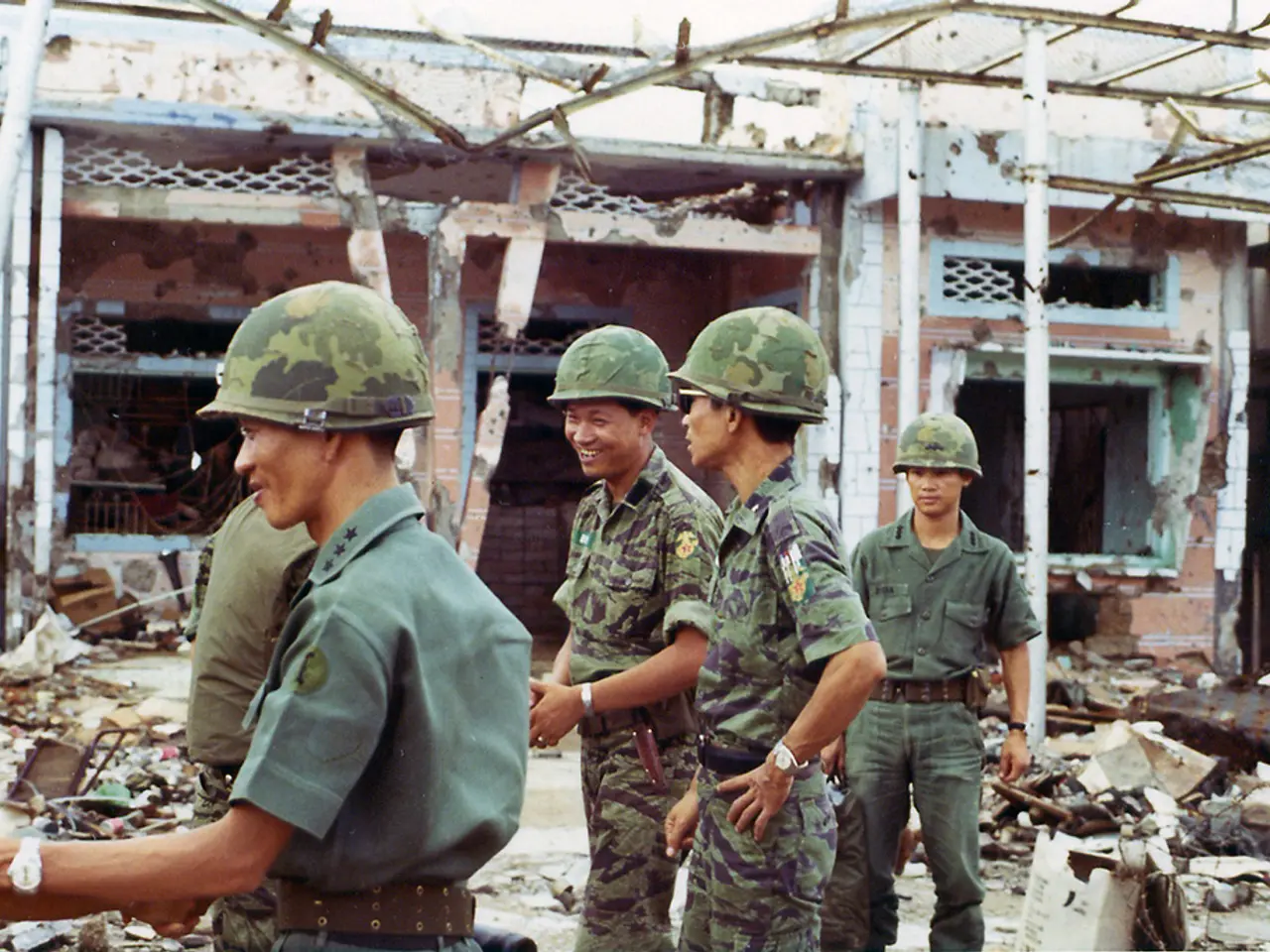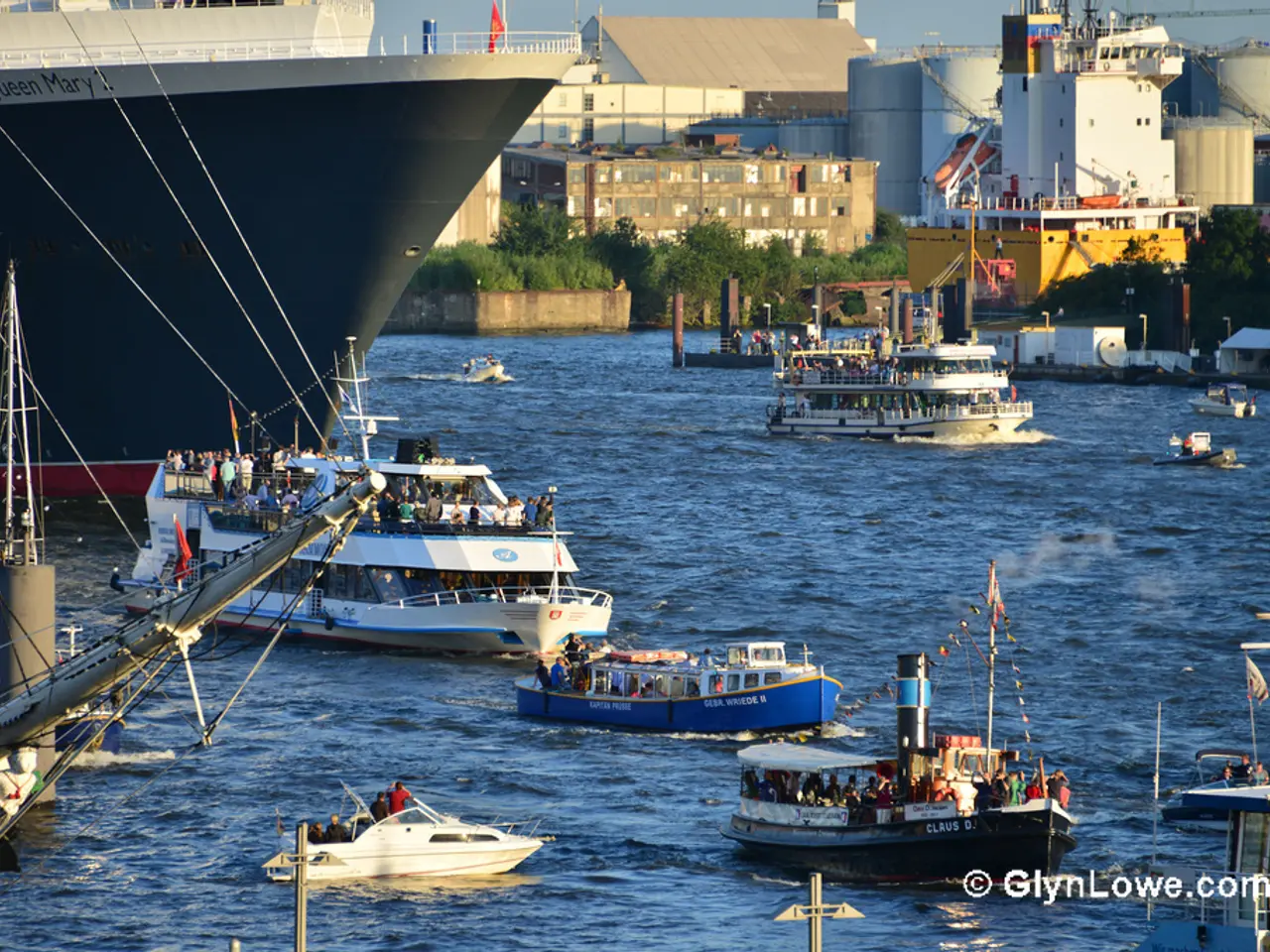U.S. military actions against Iran could strengthen North Korea's commitment to nuclear development, prompting anxiety in China.
In a significant turn of events, North Korea's nuclear strategy has undergone a shift following the US strike on Iran's nuclear facilities. According to Niklas Swanstrom, executive director of the Stockholm-based Institute for Security and Development Policy, this move could lead North Korea to prioritise making its nuclear arsenal more mobile and dispersed, focus on second-strike capability, and invest heavily in deep underground facilities and redundant production capabilities [1].
Prior to the US action against Iran, there had been some diplomatic engagement between the US and North Korea. The first summit between President Donald Trump and North Korean leader Kim Jong-un took place in Singapore in 2018, resulting in a joint statement with vague commitments to denuclearization. However, the Hanoi summit a year later ended abruptly without a deal being reached [2].
Stephen Costello, a non-resident fellow at the Quincy Institute for Responsible Statecraft, suggests that North Korean leaders may perceive President Trump as an unpredictable and non-trustworthy force due to his actions [3]. This perception, coupled with the US strike on Iran, has deepened distrust towards the US and led Pyongyang to view nuclear weapons as the ultimate security guarantee against foreign intervention or regime change [1][3].
The US strike on Iran's nuclear facilities has significantly influenced North Korea's nuclear strategy and the prospects for denuclearization on the Korean Peninsula. Experts argue that the attacks have reinforced North Korea's belief that nuclear weapons are essential for regime survival, thus tightening Pyongyang's resolve to maintain and enhance its nuclear arsenal [1].
As a result, North Korea is expected to continue investing in its nuclear programme, making it more resilient to future attacks. This development also complicates regional security dynamics, increasing the risk of nuclear proliferation and destabilization in Northeast Asia, which is a concern for China and other neighbours [1][3].
In summary, the US strike on Iran, while aimed at curbing Tehran's nuclear ambitions, has inadvertently hardened North Korea's commitment to nuclear armament and dimmed the likelihood of denuclearization, as Pyongyang sees its nuclear arsenal as vital for regime survival in the face of US military actions elsewhere [1][3].
Diplomatic efforts between the US and North Korea, which initially showed potential for denuclearization following the Singapore summit in 2018, appear to have been hampered by the US strike on Iran's nuclear facilities. This strategic move by the US has increased distrust towards the US in Pyongyang, leading North Korea to prioritize the development and fortification of its nuclear arsenal for security guarantees amidst unpredictable international politics and war-and-conflicts.







